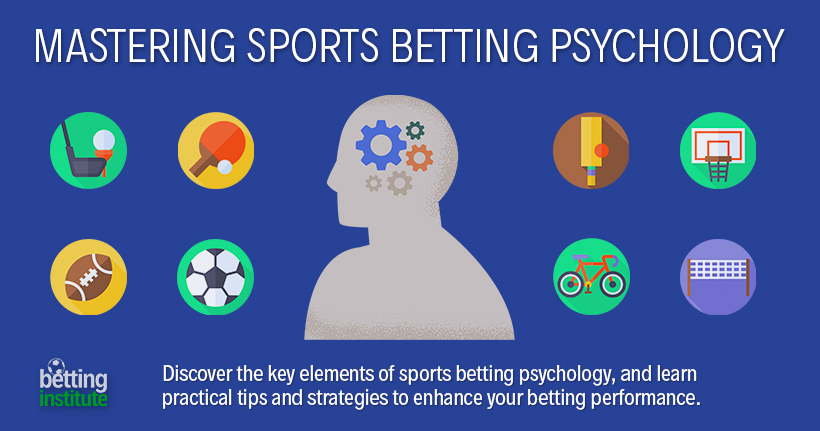Psychology in betting plays a crucial role in shaping the decisions and behaviors of individuals engaged in gambling activities. Whether it’s understanding emotional control in betting or navigating the complexities of sports betting psychology, the mental aspect greatly influences outcomes. Bettors often find themselves navigating cognitive biases that can lead them to make impulsive decisions, especially during high-pressure situations like major football matches. With the rise of online platforms, the psychological triggers that entice people to gamble have become increasingly sophisticated, transforming traditional betting strategies into more nuanced approaches. This article delves into the interplay between psychological factors in gambling and betting strategies, offering insights essential for anyone looking to enhance their betting outcomes.
The interplay between mental processes and gambling behaviors forms a fascinating mosaic that impacts how individuals engage with betting activities. Within the realm of wagering on sports, particularly football, the understanding of emotional control and psychological triggers can be pivotal for making informed betting decisions. As bettors navigate the complexities of cognitive biases and impulse-driven choices, the significance of effective betting strategies becomes clear. With technological advancements reshaping the landscape, a deeper exploration of these psychological elements can aid bettors in making more calculated and rational choices. As we delve into this captivating subject, we uncover the nuanced connections between emotional regulation, risk assessment, and overall success in the realm of betting.
The Impact of Sports Betting Psychology on Decision Making
Understanding sports betting psychology is crucial for making informed decisions. Cognitive biases, emotions, and social pressures can sway bettors’ judgment, often leading to impulsive actions rather than rational analysis. For instance, a bettor might place a bet influenced by the excitement of a championship game, neglecting to evaluate the teams’ recent performances and statistics. This lapse in judgment demonstrates how psychological factors in gambling can lead to suboptimal choices, showcasing the need for increased awareness and control over emotional reactions during betting.
Moreover, sports betting psychology not only affects individual decisions but also influences overall betting strategies. Bettors armed with knowledge about psychological triggers, such as the need for emotional control or awareness of cognitive biases, can develop more effective tactics. Instead of betting on a whim, they can create a structured approach grounded in research and a cooling-off period, which can significantly improve their chances of success in the long run. Incorporating strategies like these into one’s betting routine can lead to enhanced outcomes and a more enjoyable betting experience.
Emotional Control and Its Role in Football Betting Strategies
Emotional control plays an integral role in forming successful football betting strategies. Bettors who recognize the importance of emotion management are more likely to analyze games objectively rather than letting personal biases or impulsive feelings steer their decisions. For instance, a bettorFan might be inclined to support their favorite team without considering the statistical probabilities of the outcome, which typically leads to a chaotic betting pattern. Instead, maintaining a level-headed approach allows bettors to make choices based on solid data, enhancing their probability of success.
Furthermore, emotional control is vital for preventing gambling addiction—a concern that often accompanies impulsive betting behaviors. The impact of lack of emotional regulation can manifest in chasing losses or becoming overly involved in betting activities. By developing robust emotional strategies, such as taking breaks and reflecting on outcomes, bettors can safeguard against the risks associated with gambling. Such practices encourage a healthier outlook on betting and can help maintain the integrity of one’s strategy over time, ultimately resulting in a more sustainable approach to sports betting.
Frequently Asked Questions
What psychological factors influence decision-making in sports betting?
Psychological factors play a crucial role in sports betting decision-making. Bettors often experience cognitive biases and emotional responses that affect their choices. For example, heightened emotions during high-stakes games can lead to impulsive betting, while better emotional control can facilitate more rational decisions, particularly in football betting strategies. Understanding these psychological influences helps bettors develop effective approaches, minimizing the risk of gambling addiction and enhancing their chances of success.
How does emotional control impact football betting strategies?
Emotional control is vital for successful football betting strategies. Bettors who manage their emotions are less likely to make impulsive bets after losses or feel pressured to chase losses, reducing the chance of detrimental decisions. Studies demonstrate that those with strong emotional regulation tend to adopt calculated betting strategies based on knowledge and strategy rather than emotional impulses. This improved emotional control fosters better decision-making under pressure, which is essential in the high-stakes environment of sports betting.
| Key Points | Description |
|---|---|
| Intersection of Psychology and Gambling | Explores how psychological factors influence betting decisions, especially in sports betting. |
| Emotional Control | Effective betting requires emotional regulation to avoid impulsive decisions after losses. |
| Decision-Making Under Pressure | Understanding psychological triggers during high-stakes situations aids rational decision-making. |
| Influence of Technology | Online platforms use psychological tactics like FOMO to engage bettors and influence their behaviors. |
| Gambling Myths | Misconceptions about gambling can lead to poor decision-making and skew perceptions of odds. |
| Cultural Perspectives | Cultural beliefs significantly shape attitudes towards gambling, affecting rational choices. |
| Gambling Addiction | Understanding psychological risks is crucial to recognizing potential gambling addiction. |
| Gambling and the Brain | Research shows younger individuals may be more susceptible to impulsive betting behaviors. |
Summary
Psychology in betting is a vital element that every bettor should understand to enhance their decision-making processes. As gambling, particularly sports betting, continues to grow in popularity, recognizing the psychological factors influencing behavior is essential for success. Bettors who take the time to familiarize themselves with emotional triggers, cognitive biases, and the influences of culture and technology can make more informed and rational betting choices. By applying psychological insights, bettors develop strategies that not only improve their chances of winning but also enrich their experience in the exciting yet complex world of gambling.
